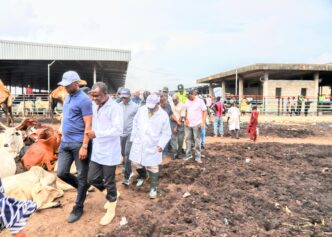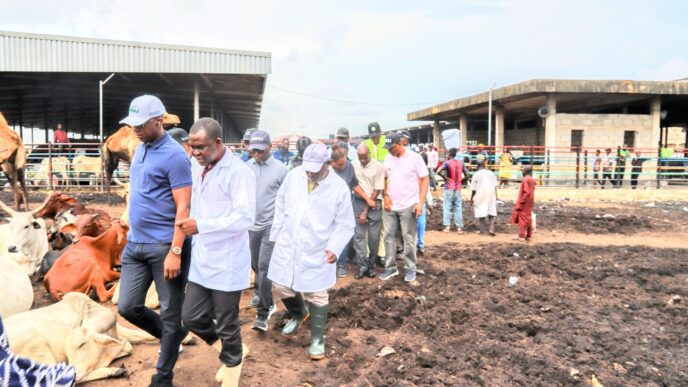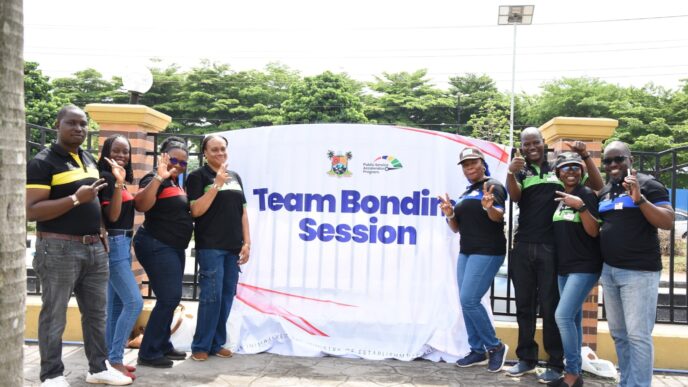As the Lagos State Government pushes ahead with the introduction of an electronic call-up system to control the movement of tankers and articulated trucks along the Lekki-Epe corridor and Lekki Free Trade Zone, tensions remain high between government authorities and truck operators.
EpeInsights reports that the residents are caught in the crossfire, who fear that without effective coordination, the corridor could become another Apapa, plagued by traffic gridlock, pollution and economic disruption.
While officials argue that the new system is essential to prevent a repeat of the Apapa gridlock nightmare, residents say the stakes couldn’t be higher for their daily lives and long-term well-being.
The e-call-up system, which was scheduled to take off on Monday, June 17, is designed to schedule and monitor truck access through digital registration and documentation uploads.
However, its rollout was marred by resistance from industry stakeholders, particularly over the N12,500 per truck fee.
The Petroleum Products Retail Outlets Owners Association of Nigeria (PETROAN) promptly directed its members to suspend loading trucks for the corridor in protest, describing the fee as excessive and out of touch with the country’s economic reality.
The action was suspended a day later to allow for negotiations, but trust has been frayed.
Unlike the Apapa corridor, Lekki still has time to avoid total chaos but only if stakeholders work together. Residents are wary of what lies ahead.
Doris Chukwuma, a mother of three in Sangotedo, said she’s watching the new system with cautious hope.
“School runs already is stressful. On some days, it takes nearly two hours to get the kids to school. I just hope the new system helps ease things not make them worse when truck traffic increases.”
Oluwole Martins, a ride-hailing driver covering Ajah to Ibeju-Lekki, described the e-call-up system as a welcome idea that must be handled properly.
“I’m on these roads daily. Things aren’t bad yet, but you can already see signs of build-up near Eleko Junction. The idea makes sense, but it needs to be fair and consistent if it’s going to work.”
Some locals are more concerned about economic impacts than traffic.
Ngozi Umeadi, who runs a small food stall near the Free Trade Zone, said she’s worried about cost implications.
“If truck operators have to pay more to move around, won’t that cost fall on small businesses like mine? We’re already dealing with high fuel prices — everything trickles down eventually.”
Recall that the Commissioner for Transportation, Oluwaseun Osiyemi, reaffirmed the necessity of the system, noting that the state is preparing for an exponential rise in truck volume.
“With over 360 trucks currently operating daily and forecasts of 3,000 to 4,000 trucks once the refinery runs at full capacity, we can’t afford to wait for chaos,” he stated.
He added that the e-call-up platform allows only authorized trucks—those with valid Authority to Load (ATL) documents to gain access, helping to curb indiscriminate parking, reduce accidents and keep major corridors flowing.
Meanwhile, the Lekki Estates Residents and Stakeholders Association (LERSA) reiterated its support for the e-call-up framework, while warning against attempts to sabotage the system.
“It’s not about opposing business. It’s about ensuring residents don’t bear the brunt of poor logistics planning,” said the statement signed by LERSA President Sulyman Bello and Communications Chair Yomi Benson.
Looking Forward: Can Stakeholders Find a Middle Ground?
The big question remains: Can government, transport unions and community stakeholders reach a consensus before the Lekki corridor tips into crisis?
Abdulkarim Musa, a civil engineer and daily commuter to the Dangote Refinery area, sums it up: “Growth is good, but it must be controlled. We’re not asking for miracles, just coordination and honesty.”
As Lagos continues its push toward industrial expansion, particularly in the Lekki corridor, the success of the e-call-up system may well determine whether the region thrives or chokes.
For now, the future hangs in the balance, shaped by whether all players can find common ground between development and disruption.













